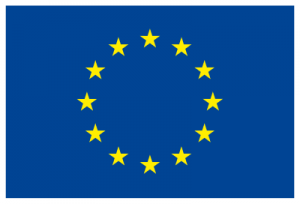In preparing the work programme for the Societal Challenge 6 ‘Inclusive, Innovative and Reflective Societies’ of Horizon 2020 for the period 2018-2020, the European Commission is ensuring adequate external advice and societal engagement. This report integrates the inputs provided by EU stakeholders, platforms, projects and activities conducted between September 2015 and May 2016.
Read More →
This project has received funding from the European Union’s Seventh Framework Programme for research, technological development and demonstration under grant agreement n° 612789.
Economics of Culture
D7.1 Evidence-based policy reports and recommendations
Series of reports containing analysis and recommendations, with a special focus on the role of digital technologies, incorporating foresight studies, visioning work and SWOT analysis and laying the main themes, opportunities and problems for policy-makers working within a context of change.
Read More →European Policy Brief. The Economic and Fiscal Dimension of Cultural Heritage.
This policy brief focuses on the effects of two forms of government support: VAT regulation for CH goods and services and direct subsidies to CH organisations. It presents the results and outcomes of the research that explores the relation between the characteristics of different European countries and the effects of government support in VAT rates for CH organisations, and it describes the actions that can be taken to stimulate a CH-rich and CH-engaged European society.
Read More →D5.4 CH Best Practice in the Digital Economy
Report addressing one the most important issues for the future of cultural heritage: experimentation and innovation in digital technology in a time of social and technological change. The deliverable offers an insight into CH best practice in the digital economy through collaborative interdisciplinary projects that engage CH institutions with academic research institutions.
Read More →Getting cultural heritage to work for Europe
The report, presenting the conclusions of the Expert Group established under the Horizon 2020 Work Programme 2014 for the Societal Challenge ‘Climate action, environment, resource efficiency and raw materials’, provides the rationale for setting a renewed European Research & Innovation policy agenda on cultural heritage.
Read More →Public Hearing. An integrated approach to cultural heritage in Europe: State of play and perspectives
The European Parliament’s Committee on Culture and Education held a public hearing on 2 December 2014 in Brussels. The hearing focused on the current state of play, the challenges faced and the steps to be taken in order to tap into the potential of cultural heritage for social progress and sustainable economic development.
Read More →Conclusions on cultural heritage as a strategic resource for a sustainable Europe
For the first time ever, the Council of the European Union has adopted Conclusions on cultural heritage as a strategic resource for a sustainable Europe. Under the leadership of the Hellenic Presidency of the European Union, the Education, Youth, Culture and Sport Council adopted these historic conclusions at its meeting on 21 May in Brussels.
Read More →Cultural Heritage Counts for Europe
The Cultural Heritage Counts for Europe Report demonstrates the extraordinary power of our cultural heritage to improve the quality of our lives. In every corner of Europe, the wealth of heritage buildings and sites, historic neighbourhoods and cultural landscapes has the capacity to inspire and enrich us all and to help us foster and nurture a sense of belonging to a wider community.
Read More →D5.3 Fiscal and Economic Issues in the Digital Age
Report providing an economic analysis of the impact of taxation, public support and private contribution to the production, distribution and consumption of cultural heritage and to improve understanding of the geography of cultural activities and ways in which fiscal policy can become more efficient in the age of digitization.
Read More →Economics of Culture
Within the RICHES project we investigate fiscal and economic aspects of cultural consumption in the European Union. One of the available and yet underappreciated tools in cultural policy at the national level is the reduction of VAT rates for cultural goods and services. We explore the potential of fiscal incentives by introducing a theoretical model, which is then tested using data for all EU countries in the period of the last two decades.
Read More →